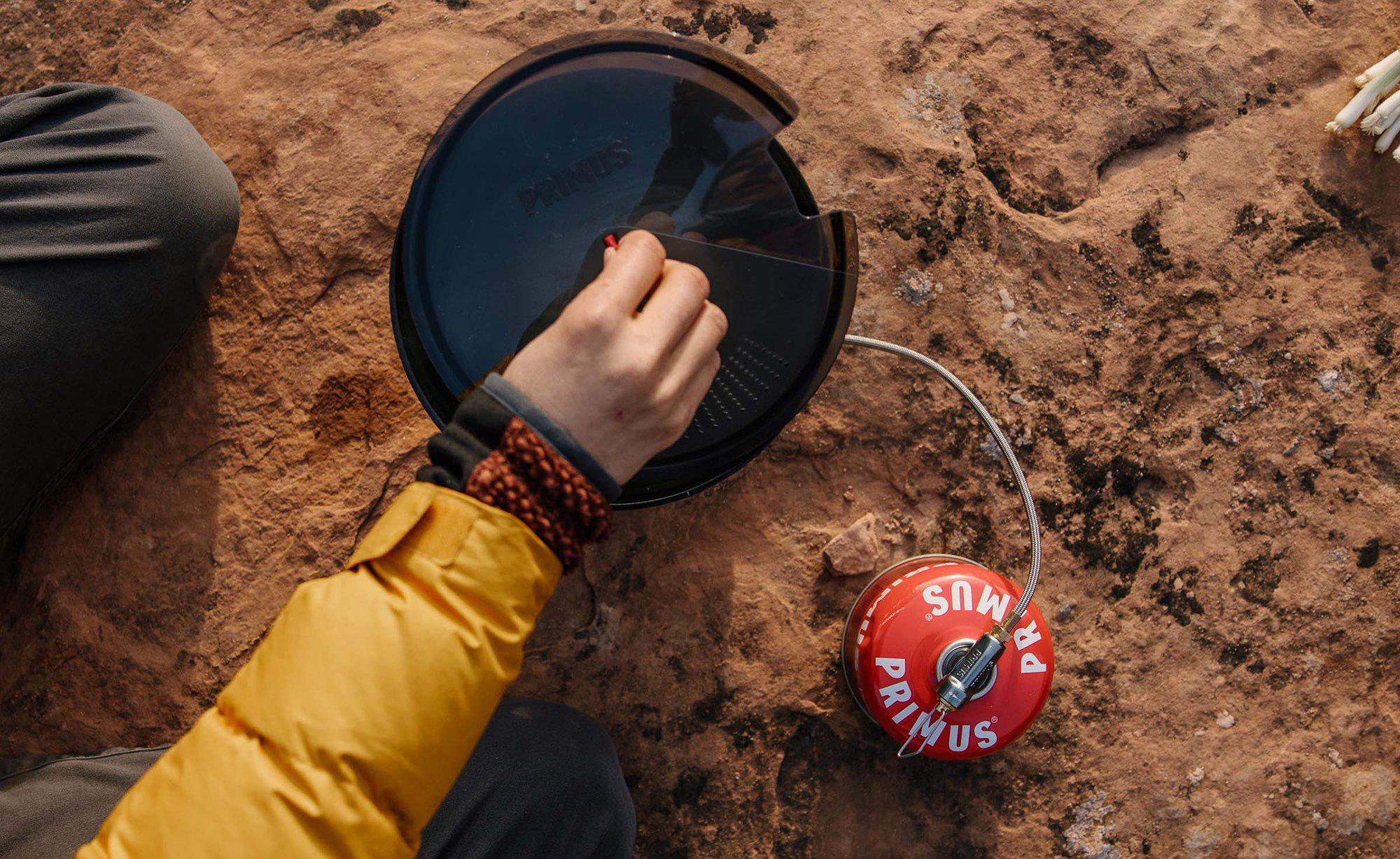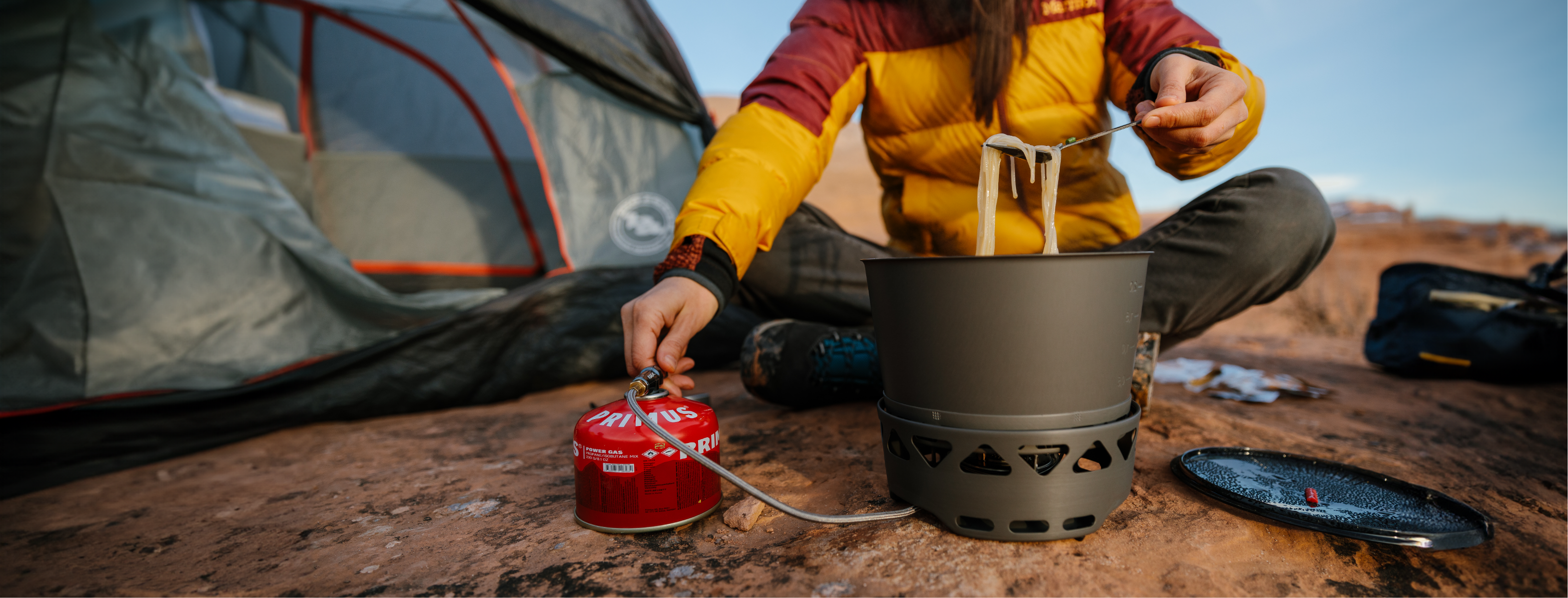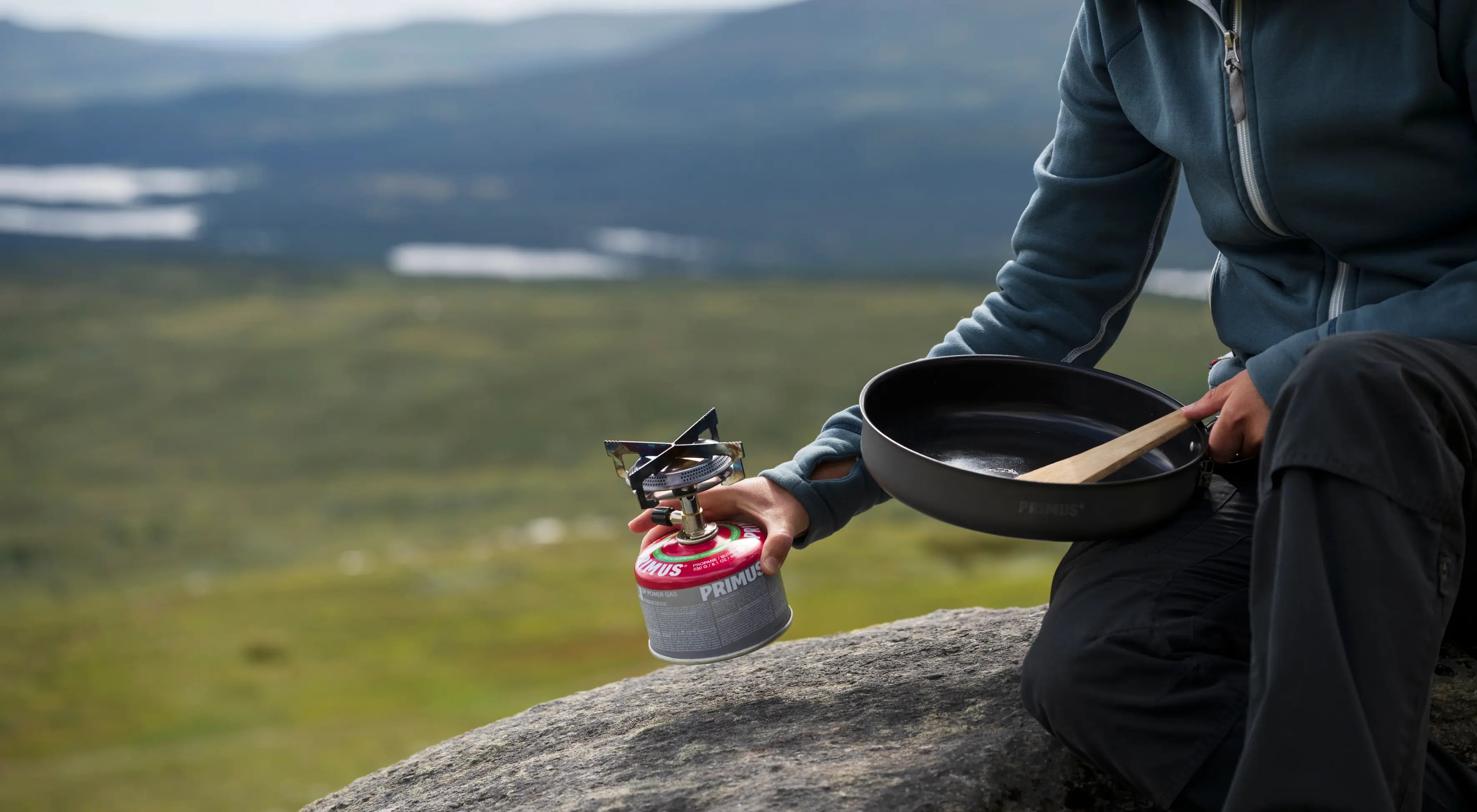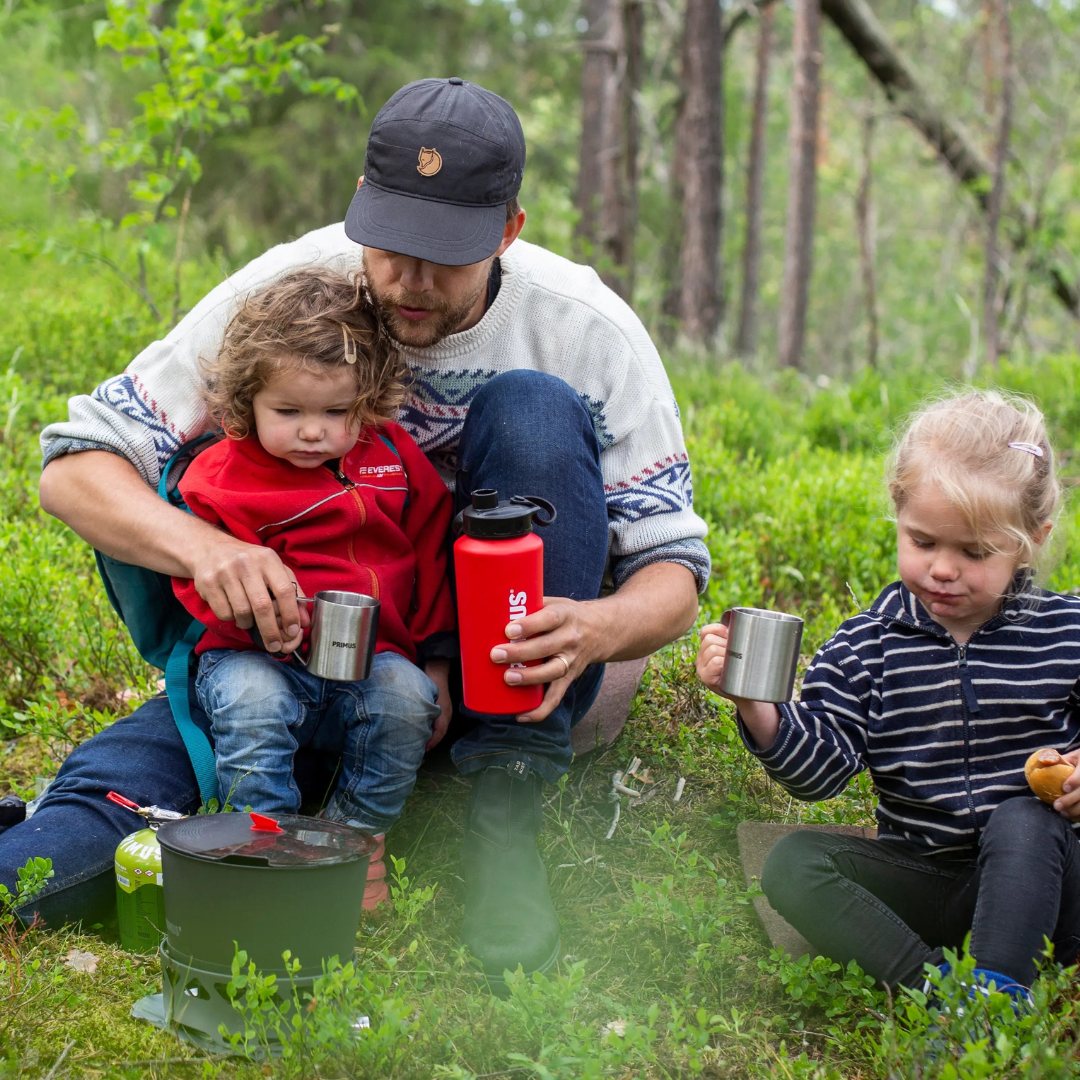Despite the growing awareness and interest in sustainable practices, producing sustainable outdoor fuel has proven to be challenging. In this article, we explore the reasons behind the difficulty of creating sustainable outdoor fuel and explain why Primus’ SIP Power Gas is such a big step toward addressing this issue.
The Challenge of Sustainable Fuel
Outdoor activities and adventure tourism have become increasingly popular in recent years. More and more people are looking for ways to escape their daily routines and enjoy nature by engaging in activities like hiking, camping, backpacking, bikepacking and other outdoor adventures.
However, as more and more people seek outdoor adventures, the demand for outdoor fuels such as propane, butane and liquid petroleum gas has also increased. That’s why the environmental impact of using such fuels has become a growing concern. The use of unsustainable outdoor fuel not only contributes to greenhouse gas emissions but also has the potential to harm the surrounding environment.
Outdoor stove fuel & it's environmental impact
Currently, no studies have measured the exact environmental impact of outdoor stove fuel. However, since oil and gas are considered non-renewable resources, their production and use have various ecological, social, and economic effects.
Some common types of camping stove fuels include propane, butane, isobutane and white gas. Yet, it is not only the products and their raw materials themselves that leave a strong ecological footprint but also their supply chains. Camping stove fuel can be produced in various locations worldwide, depending on the fuel type.
Propane and butane are often produced as by-products of natural gas processing or crude oil refining. The production locations can vary depending on natural gas or crude oil sources. Some countries with large reserves of natural gas or crude oil, such as the United States, Russia and Saudi Arabia, are major producers of propane and butane. Isobutane is typically produced from natural gas processing and is commonly used in canisters for backpacking stoves. White gas is typically produced from petroleum distillation and is commonly used in North America.
In general, the production and distribution of camping stove fuel involve complex supply chains that can span multiple countries and companies.
What is Primus SIP Power Gas? And how does it work?
Due to these premises, it is no surprise that traditional outdoor stove fuels have a large ecological footprint. With the new SIP Power Gas, we want to address these challenges. Basically, Primus SIP Gas is a classic camping gas that performs similarly to the traditional Primus Power Gas. However, through its unique concept and a change in delivery and production routes, it endures the production of biogas and helps to phase out fossil fuels.
While we traditionally have sourced our gas from South Korea, we have moved the production for SIP Power Gas to Greece to be closer to our main customer base. From there, the gas is now being transported to Northern Germany and then to Sweden – a significant shortening of the delivery routes. The reason that production was not moved directly to Northern Europe is that there is currently no infrastructure in Sweden or Germany to fill biogas into camping gas containers in these countries.
To still be able to support the production of biogas, Primus had to master several challenges at once: the logistics and the technical requirements. Despite these obstacles, we found a solution to circumvent these challenges: At this time, we will continue to fill our containers with traditional gas but purchase the same amount of biogas for companies that can already technologically integrate it into their products. In summary: For every SIP Power Gas canister, we purchase the same amount of biogas (made from food waste) which is then used in locally produced products. This is the first step in our journey of providing a more sustainable stove fuel – a journey that is very complex, as the following chapter shows.
Why is there no bio-based gas in SIP Power Gas?
Due to the current technical and infrastructural conditions, there is currently no biogas in the SIP Power Gas Containers. Nevertheless, with every purchase, you support the production and use of biogas. This is how it works:
- Currently, biogas is produced in Sweden only.
- However, as of today, Sweden has no industrial filling station for camping gas canisters in place.
- This will surely happen. However, to invest in a production line, the demand for biogas in camping gas canisters has to increase first.
- Primus works closely with a partner in Sweden to make this happen.
- Until then, we ensure that for every sold SIP Power Gas canister, the same amount of biogas is being produced and put into the market.
- Therefore, Primus places an order for SIP power gas with their partner in Sweden.
- The partner then orders the SIP power gas from a filling facility in Greece.
- The Swedish partner then adds the same amount of biogas (coming from a Swedish biogas refinery) to its overall production. Primus is paying for the extra costs.
- The Swedish partner then sells the mix of biogas and fossil gas to customers who can technically fill that gas into their products.
- The figures show how positive the effects of this process can be: If such products are filled with biogas instead of fossil fuels, their CO2 emissions can decrease dramatically.
- Primus receives SIP power gas with a biogas certificate.
All these efforts make the SIP Power Gas the currently most sustainable option on the market. Even though the gas itself is basically not greener than any other gas, its optimized process significantly saves CO2 emissions compared to traditional outdoor fuel solutions. That’s why the SIP Power Gas is also EKOenergy labeled, a label that fulfills strict sustainability criteria and contributes to the fight against energy poverty and climate change.
The future of sustainable outdoor stove fuel
We are, of course, fully aware that this procedure can’t be the final solution. However, we firmly believe this is the best we can do to support the transition to bio-based fuels. By increasing the demand, we ultimately hope to increase the worldwide production of bio-based fuels. In the long term, we strive to fill bio-based fuel into our canisters instead of buying certificates.
And that is not the only goal we are pursuing: In the long term, we are researching how we can get refillable canisters. This is also not technologically possible at the moment. However, the SIP Power Gas is a big first step because the product helps us further invest in research in this area and shake up the market.
Are you in the right place
Please select your store
















